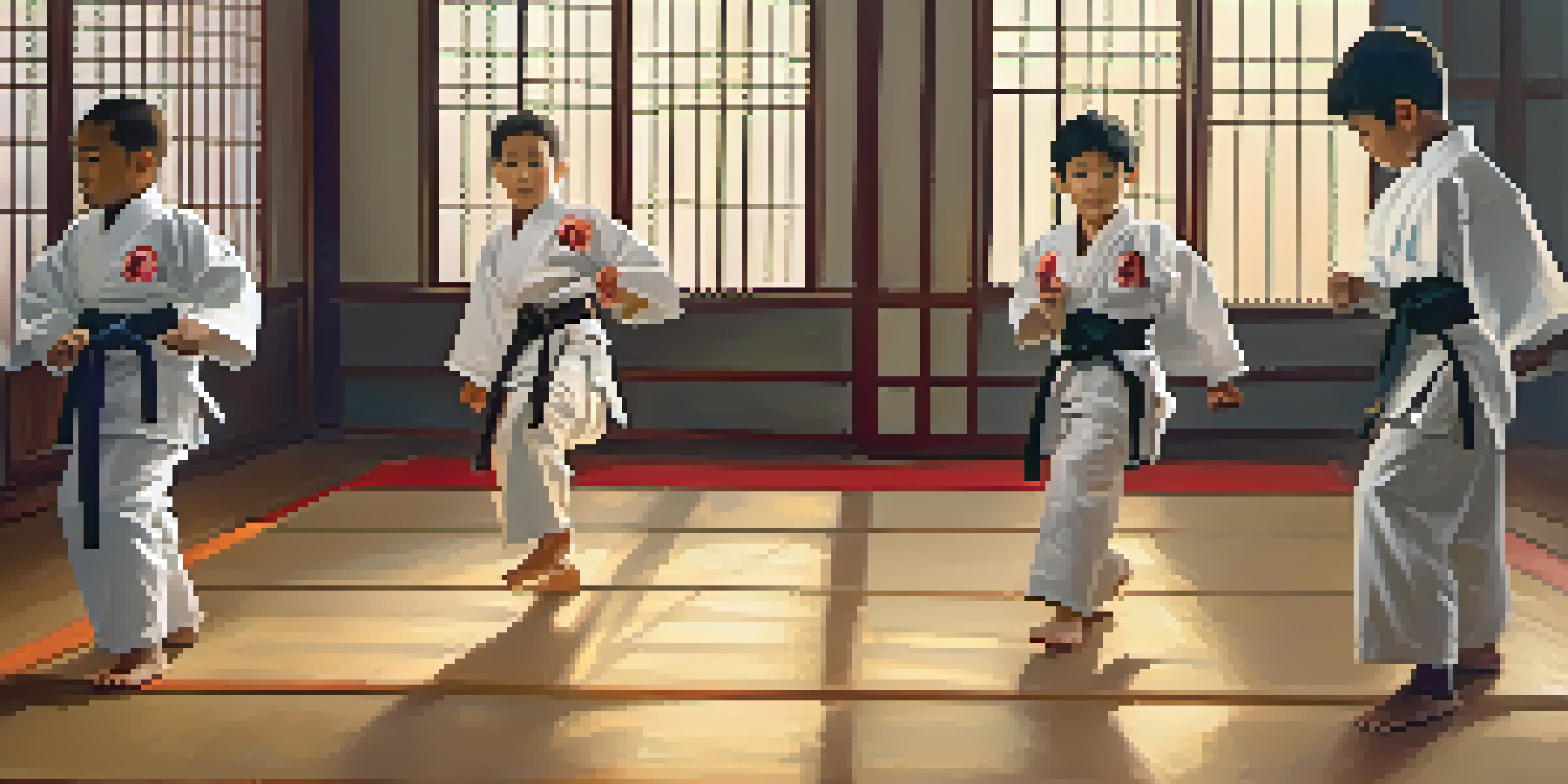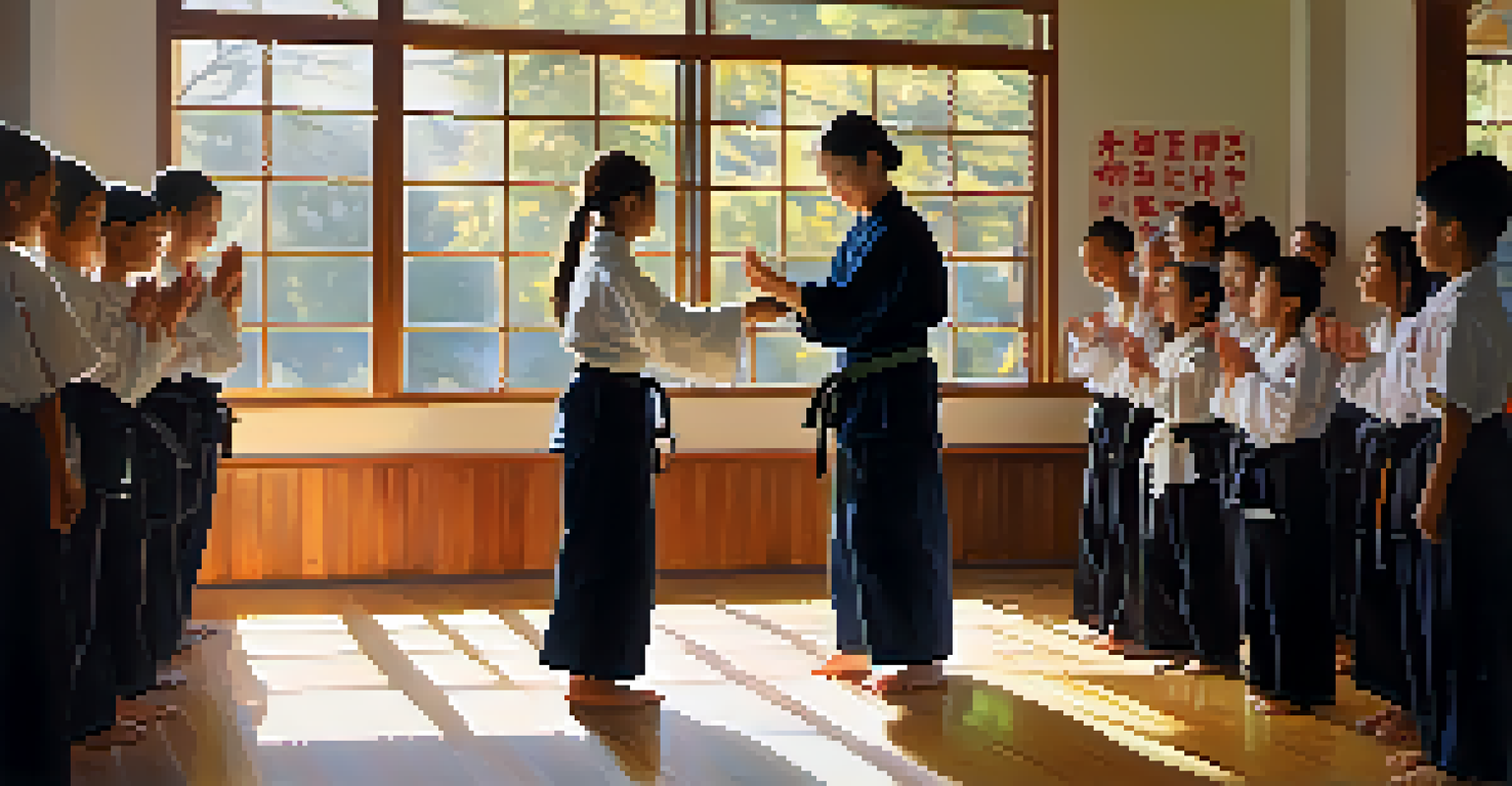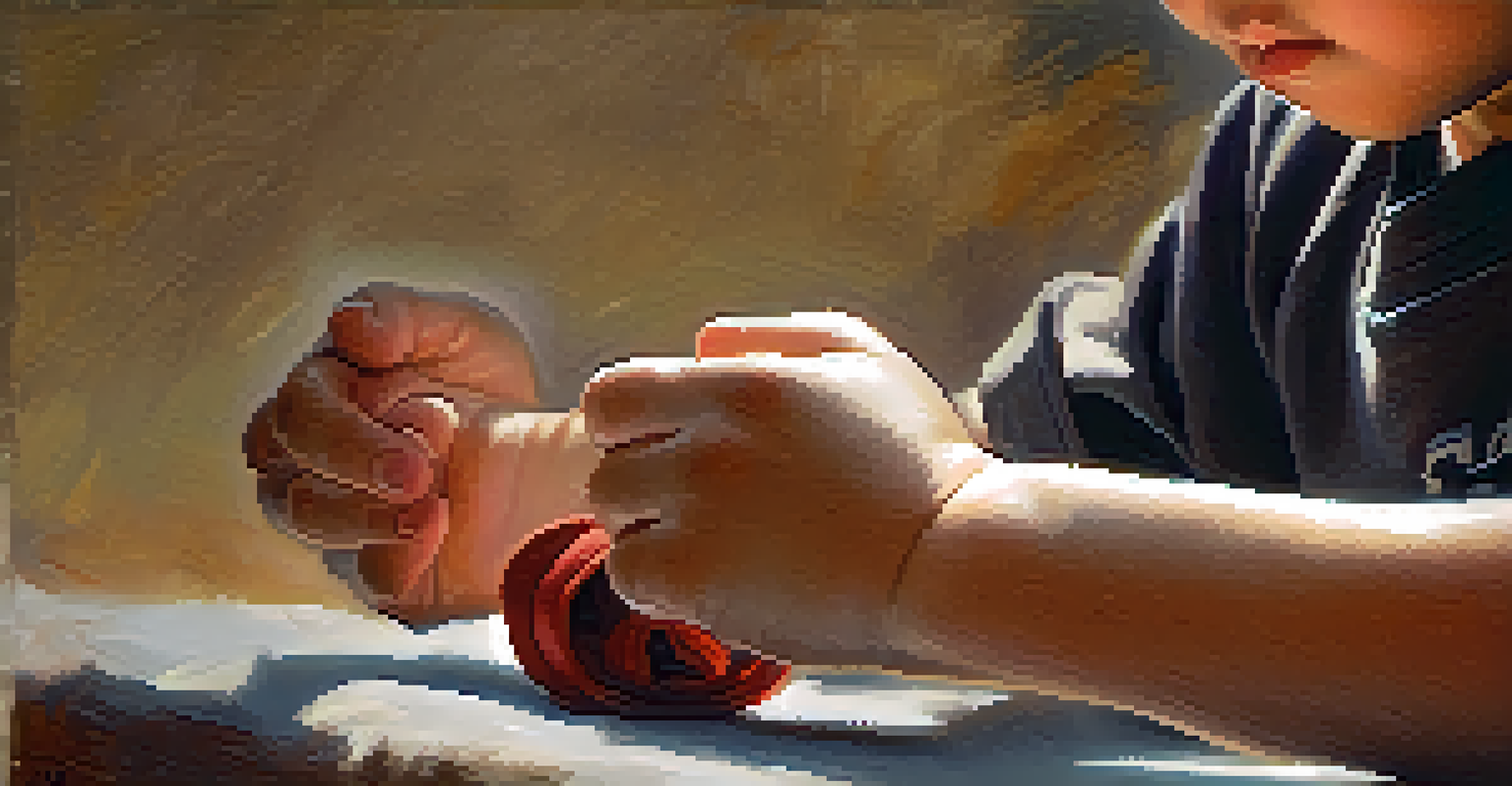Building Confidence: Martial Arts as a Youth Empowerment Tool

Understanding Youth Empowerment Through Martial Arts
Youth empowerment is about giving young people the tools they need to thrive, and martial arts is an excellent avenue for achieving this. Through training, children learn discipline, focus, and self-control, which are essential life skills. These skills not only enhance their performance in martial arts but also translate into school and social situations.
The greatest glory in living lies not in never falling, but in rising every time we fall.
Martial arts classes often create a safe, structured environment where youth can express themselves while learning to respect others. This balance of self-expression and discipline is crucial as it nurtures confidence in their abilities. As they master new techniques, the sense of achievement fuels their self-esteem.
Moreover, martial arts teaches young people how to set and reach goals, further reinforcing their belief in themselves. Each belt progression represents hard work and dedication, instilling a sense of pride that extends beyond the dojo. This journey of self-improvement is at the heart of youth empowerment.
The Role of Discipline in Building Confidence
Discipline is a core principle in martial arts, laying the groundwork for building confidence. Young practitioners learn that success doesn’t come overnight; it requires practice, patience, and perseverance. This understanding helps them appreciate the value of hard work, which is a lesson that will serve them well throughout life.

As students commit to regular training, they cultivate a sense of responsibility toward their own progress. They learn to show up consistently, practice their techniques, and push through challenges. Each small victory, whether it’s mastering a new move or earning a belt, reinforces their belief in their capabilities.
Empowerment Through Skill Development
Martial arts equips youth with essential life skills like discipline, focus, and self-control that enhance their confidence and abilities.
This consistent discipline helps youth face challenges outside the dojo too, from academic hurdles to social anxieties. When they tackle these challenges with the discipline they've developed, their confidence grows even further, creating a positive feedback loop that encourages them to take on even more difficult situations.
Building Resilience Through Challenging Situations
Martial arts often involves facing physical and mental challenges, teaching youth how to bounce back from setbacks. Whether it’s losing a sparring match or struggling with a new technique, students learn that failure is a part of growth. This perspective encourages them to keep trying, fostering resilience that carries over into other aspects of their lives.
Success is the sum of small efforts, repeated day in and day out.
When kids experience challenges in martial arts, they learn to analyze what went wrong and make adjustments. This ability to reflect and adapt is essential for developing a resilient mindset. Instead of shying away from difficulties, they become more willing to confront and overcome them.
Resilience gained through martial arts helps youth navigate the ups and downs of life with greater ease. They become more adaptable and equipped to handle disappointments in school, friendships, and beyond, making them more confident in their ability to face the world.
Creating a Sense of Community and Belonging
One of the most significant benefits of martial arts is the sense of community it fosters. When youth train together, they form bonds that instill a feeling of belonging. This connection to others can be incredibly empowering, especially for those who may feel isolated or insecure in other areas of their lives.
In martial arts classes, students support one another, celebrating each other’s milestones and encouraging one another through challenges. This camaraderie builds a supportive environment where young people feel valued and understood. Knowing they have a team behind them boosts their confidence to take risks and grow.
Building Resilience in Challenges
Facing physical and mental challenges in martial arts teaches youth how to bounce back from setbacks, fostering a resilient mindset.
Furthermore, having a community reinforces the idea that they are not alone in their struggles. When youth see their peers overcoming obstacles, it inspires them to tackle their challenges head-on. This shared journey creates a powerful foundation for building self-assurance and social skills.
Improving Focus and Concentration Skills
Martial arts training requires intense focus and concentration, skills that are beneficial for youth in all areas of life. When students practice techniques, they must be present in the moment, blocking out distractions. This practice not only sharpens their mental acuity but also enhances their ability to concentrate in schoolwork and other activities.
As they learn to focus their energy during training, they also develop mindfulness, understanding the importance of being aware of their bodies and surroundings. This heightened awareness translates into improved performance in academics, as they become better at tuning into lessons and retaining information.
Moreover, enhancing focus and concentration builds confidence in their abilities to learn and succeed. When they apply these skills in various aspects of life, they gain a sense of control over their environment, further reinforcing their self-esteem.
Fostering Leadership Qualities in Youth
Martial arts not only develops individual skills but also fosters leadership qualities among youth. In many dojo environments, students are encouraged to assist one another, whether it’s helping a younger student learn a technique or leading warm-ups. These responsibilities promote leadership skills that can be applied in school and community settings.
As students take on leadership roles in class, they learn how to communicate effectively, motivate others, and be accountable for their actions. This experience is invaluable, as it prepares them for future roles in group projects, sports teams, or even in their future careers.
Creating Community and Confidence
The camaraderie found in martial arts classes provides youth with a sense of belonging, boosting their confidence and social skills.
By cultivating these leadership qualities, martial arts empowers youth to take initiative and inspire those around them. This newfound confidence in their ability to lead not only benefits them personally but also contributes positively to their communities.
Setting Goals and Achieving Success
Goal setting is a fundamental aspect of martial arts training, and it teaches youth how to set realistic, achievable objectives. Whether it’s earning a new belt, mastering a technique, or improving fitness levels, students learn to break down larger goals into manageable steps. This process instills a sense of purpose and direction in their training.
As they work toward these goals, the sense of accomplishment they feel upon achieving them boosts their confidence significantly. Each success, no matter how small, becomes a building block in their self-esteem. They learn that with dedication and effort, they can reach their desired outcomes.

This goal-oriented mindset fosters a proactive approach to challenges in life. When youth understand the value of setting and pursuing goals, they become more confident in their ability to navigate their education, relationships, and future aspirations with determination.